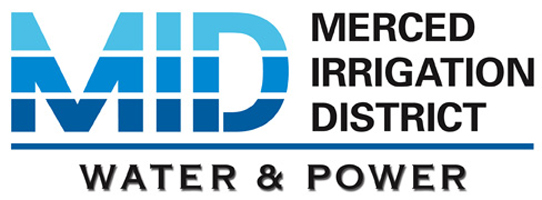 Control Board (SWRCB). We believe those changes, together with other key appointments he has made in his administration, provide a new and much-needed opportunity to take a step back from the contentious last decade we have been living through in the water community. We have an opportunity to make real progress for Merced River salmon and water quality improvements in California.
Control Board (SWRCB). We believe those changes, together with other key appointments he has made in his administration, provide a new and much-needed opportunity to take a step back from the contentious last decade we have been living through in the water community. We have an opportunity to make real progress for Merced River salmon and water quality improvements in California.As part of starting fresh with this new opportunity, we want to provide the Governor and the new appointees throughout his administration with some facts as to why, from our perspective, MID was unable to reach a framework for settlement with the State prior to the SWRCB’s adoption of their Bay-Delta Water Quality Control Plan and SED. Quite simply – MID was being asked for far more water than any other party, on an equity or statistical basis, without any valid justification, support or documentation. The State never provided any documentation or data to support their water demands, and the state also never acknowledged the lack of equity in relation to our watershed yield and water storage ability compared to the settlements on other rivers and systems being embraced by the state negotiators.
To use a phrase commonly used in negotiations by others – the state has been looking to test a hypothesis. The hypothesis proclaimed by CDFW since 2012 – “We won’t know what kind of natural production we’re going to get until we start increasing flows to see what natural production we can achieve.” Wait, what? The state wants our community to give up our senior water rights, storage rights and our community’s economy to “test a hypothesis?” And their hypothesis means the taking of water from our community – and sending it to the ocean with the faint hope that salmon numbers will improve? We can tell you there have been far more discussions about how much water can flow to the ocean than there has been about actual proven lifecycle management strategies to boost salmon populations. Some of the state’s leaders have ignored the realities of anything but their own science and dismissed the impacts our disadvantaged community will bear. These include impacts to our community’s drinking water quality and supply, as well as our local environment. How can MID negotiate the future of our region under these circumstances? It frankly cannot, and we will not.
Before we suggest a path forward, we need to stress we as a Board have an established track record of being realistic, progressive and pragmatic. If invited back to the settlement table, MID will continue to proactively negotiate in good faith, and we will support and embrace a settlement we and our biologists believe will address the core issues affecting salmon populations in our zone of influence, the lower Merced River. But we cannot defend a settlement plan that science and reality does not support. We cannot defend a plan that dumps precious water to the ocean without knowing exactly what benefits will be attained to finally solve the salmon issue. We are willing to do our part and then some, but we are not going to “settle” for the sake of settling.
The path forward involves the following: First, the fundamental ideas behind and driving the SED must be set aside. We understand the time and money involved in developing that plan, but anyone who has worked on any significant public or private project understands there sometimes comes a point when a reset button is needed. The flaws in the SED, both factual and legal, are obvious and undeniable. As painful as it may seem, the time to push the reset button passed a long time ago, but it is not too late. Second, a realistic comprehensive flow and nonflow salmon lifecycle plan needs to be negotiated for a set term encompassing several salmon lifecycles. We have been and continue to be willing to discuss new and significant new water releases into the Merced River. We support new flows coupled with in-stream and side channel river restoration projects, predation control, and physical and operational salmon hatchery improvements. We also support peer-developed and reviewed monitoring by a science panel to include local and national fishery experts. Monitoring is vital to the success of combined flow and non-flow actions to support the development of the best modern science to inform and address salmon lifecycle issues.
Opportunity has already been lost. If MID had been taken up on its offer to implement the S.A.F.E (Salmon, Agriculture, Flow and Environment) Plan years ago, significant new flows would have already been in the Merced River and vital habitat restoration projects would have been completed. The S.A.F.E Plan would have created habitat for thousands of new spawning sites (Redd’s), and floodplain rearing habitat would have been increased by 300%. But instead opponents of Merced ID have embraced the high-stakes game of ‘take it all.’ This is not productive.
We sincerely welcome this new opportunity to work with Governor Newsom, his staff, and the members of the SWRCB. We hold a genuine hope that the divisions that led us all to court can be set aside and new relationships can be built with the ultimate goal of improving salmon populations and their habitat. We are open to being a proactive part of a solution to some of the larger water quality issues that have plagued California for decades. But most importantly, we look forward to doing so in a way that protects our community, not destroys it.
Source: MID








